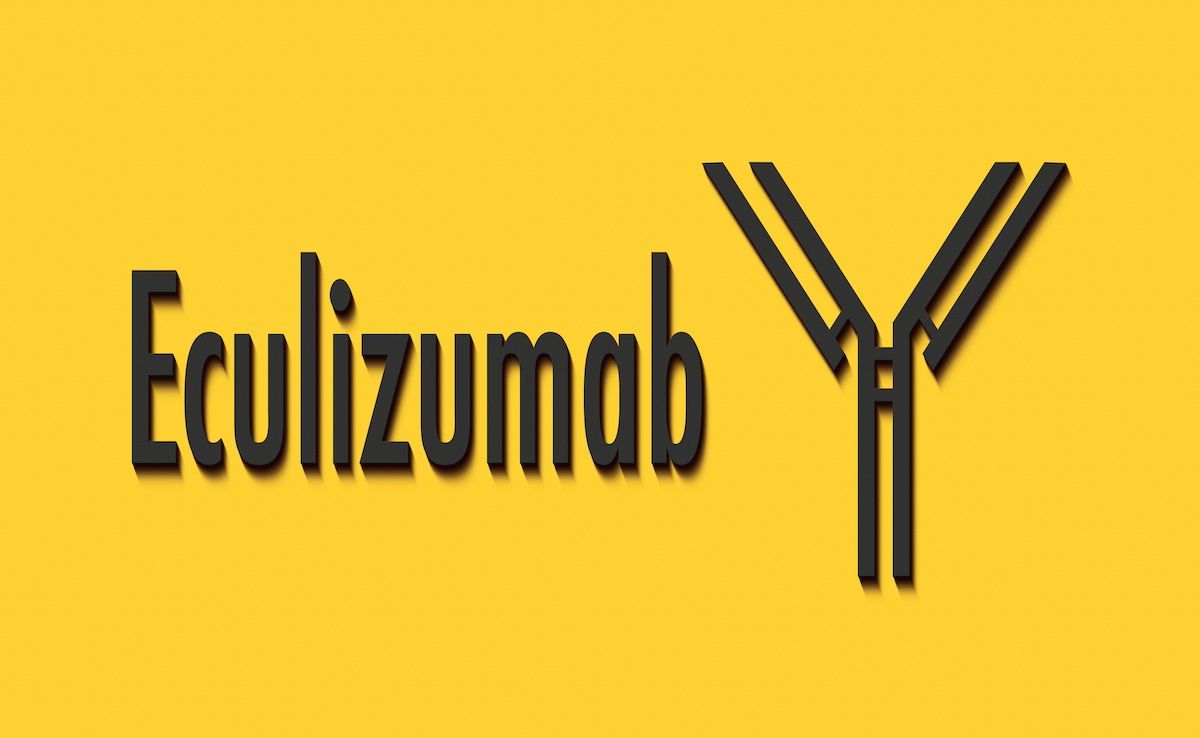- Center on Health Equity & Access
- Clinical
- Health Care Cost
- Health Care Delivery
- Insurance
- Policy
- Technology
- Value-Based Care
Eculizumab Shows Promise in Thymoma-Associated Myasthenia Gravis
Across 5 research centers, investigators evaluated the impact of eculizumab on thymoma-associated myasthenia gravis, a severe disease subtype.
Among 42 patients living with diagnosed generalized myasthenia gravis, those who also had the subtype thymoma-associated myasthenia gravis (n = 22) demonstrated reductions in their Myasthenia Gravis Activities of Daily Living (MG-ADL) and need for corticosteroids by week 12 of treatment with eculizumab.
New study findings from a joint investigation at 5 research centers in Shanghai, China, in Therapeutic Advances in Neurological Disorders1 explain the efficacy and safety of eculizumab. The monoclonal antibody targets the complement protein C5 and prevents it from cleaving into C5a and C5b, thereby inhibiting the membrane attack complex.2,3
Patients in this real-world analysis were treated between June 2023 and June 2024 in 5 neuromuscular diagnostic centers in East, South, and West China for their thymoma-associated myasthenia gravis, which has more severe symptoms, requires more extensive respiratory support, and has a higher mortality rate compared with patients who have myasthenia gravis but not thymomas.1 To be included in this analysis patients had to be 18 years or older (mean [AD] age, 51.5 [12.1] years), have a history of thymomas, be seropositivite for anti-AChR antibodies, received at least 4 infusions of eculizumab to complete the induction phase, and be vaccinated against Neisseria meningitidis before starting eculizumab or have received antibiotic prophylaxis until 2 weeks after vaccination.
Thymoma-associated myasthenia gravis has more severe symptoms, requires more extensive respiratory support, and has a higher mortality rate compared with patients who have myasthenia gravis but not thymomas. | Image Credit: © molekuul.be - stock.adobe.com

At baseline, the patients (54.5% were female patients) had a mean AChR antibody level of 15.3 (19.3) nmol/L, their mean disease duration was 4.0 (4.3) years, MG-ADL score was 11.7 (6.0), and steroid dose, 41.8 (63.9) mg. Thymectomies had been performed in 19 of the 22 patients—the most common World Health Organization histology was B2/B3 in 63.7%—54.5% of whom received postoperative radiotherapies or chemotherapies.
Overall, most patients started eculizumab because of a myasthenic crisis (27.3%), an impending myasthenic crisis (22.7%), or an acute disease exacerbation (13.6%). They also had no evidence of active infection, with a white blood cell count of 9.9×109/L and a C-reactive protein level was 5.4 mg/L, both within the normal range. Most patients also had normal levels of immunoglobulin G and normal absolute counts of B lymphocytes, CD4+ T lymphocytes, and CD8+ T lymphocytes. The mean follow-up was 155 (96.2) days and mean eculizumab treatment duration, 127.0 (85.6) days.
By final follow-up, 81.8% of patients had demonstrated clinically meaningful improvements, which were first witnessed within a mean 1.7 (1.4) weeks of eculizumab initiation. Mean MG-ADL scores also progressively declined, by 5.3, 6.1, and 7.4 points, respectively, at 4, 8, and 12 weeks. A total of 77% of the patients with thymoma-associated myasthenia gravis were ultimately classified as ADL responders.
Compared with baseline, the mean oral corticosteroid dose had dropped by 44.5%, to 23.2 (26.5) mg, by week 12 of treatment with eculizumab.
Regarding safety, only 2 patients exhibited treatment-emergent adverse events, at 1 case each of COVID-19 and rash/herpes labialis. There also were no cases of meningococcal infection or treatment discontinuations. Four patients died, 2 of whom initially improved on eculizumab before succumbing to respiratory or circulatory failure that was secondary to metastasis.
A subanalysis of patients who received efgartigimod before eculizumab (mean age, 51.6 [10.6] years; disease duration, 4.1 [4.1] years) demonstrated an ending MG-ADL score of 0 (n = 2) or at least an improved status (n = 6). The cohort’s overall MG-ADL baseline score was reduced to 3.4 (3.2) from the 11.6 (5.3) seen at baseline, and their average corticosteroid dose dropped from 31.7 (28.3) mg to 11.3 (78.4) mg by week 12.
The study investigators explain that along with new biologic treatment advances come opportunities to explore target-specific immunotherapies in myasthenia gravis, of which eculizumab is one. They recommend that larger randomized controlled trials be undertaken to confirm eculizumab’s efficacy in thymoma-associated myasthenia gravis.
References
1. Jin L, He D, Zend Q, et al.Eculizumab in thymoma-associated myasthenia gravis: a real-world cohort study. Ther Adv Neurol Disord. 2024;17:17562864241309431. doi:10.1177/17562864241309431
2. Chen X, Qiu J, Gao Z, et al. Myasthenia gravis: molecular mechanisms and promising therapeutic strategies. Biochem Pharmacol. 2023;218:115872. doi:10.1016/j.bcp.2023.115872
3. Forrester JV, Dick AD, McMenamin PG, Roberts F, Pearlman E. Chapter 7 – Immunology. In Forrester JV, Dick AD, McMenamin PG, Roberts F, Pearlman E, eds. The Eye (Fourth Edition). W.B. Saunders; 2016:370-461.e2.
